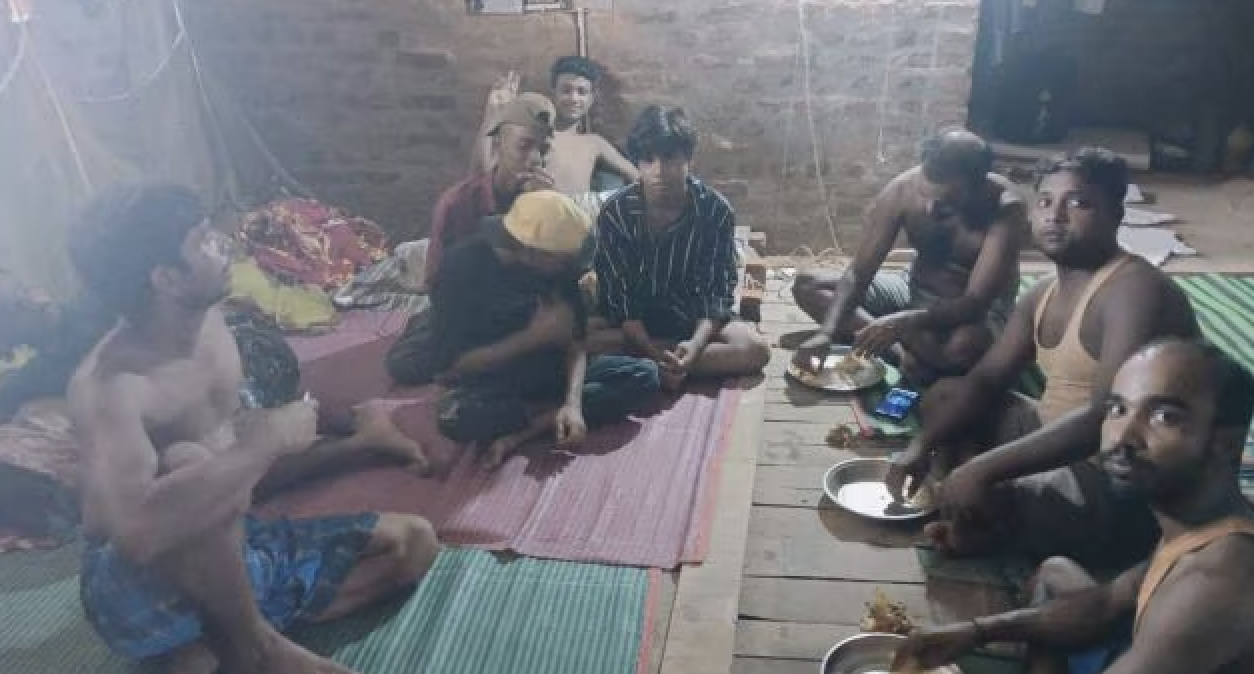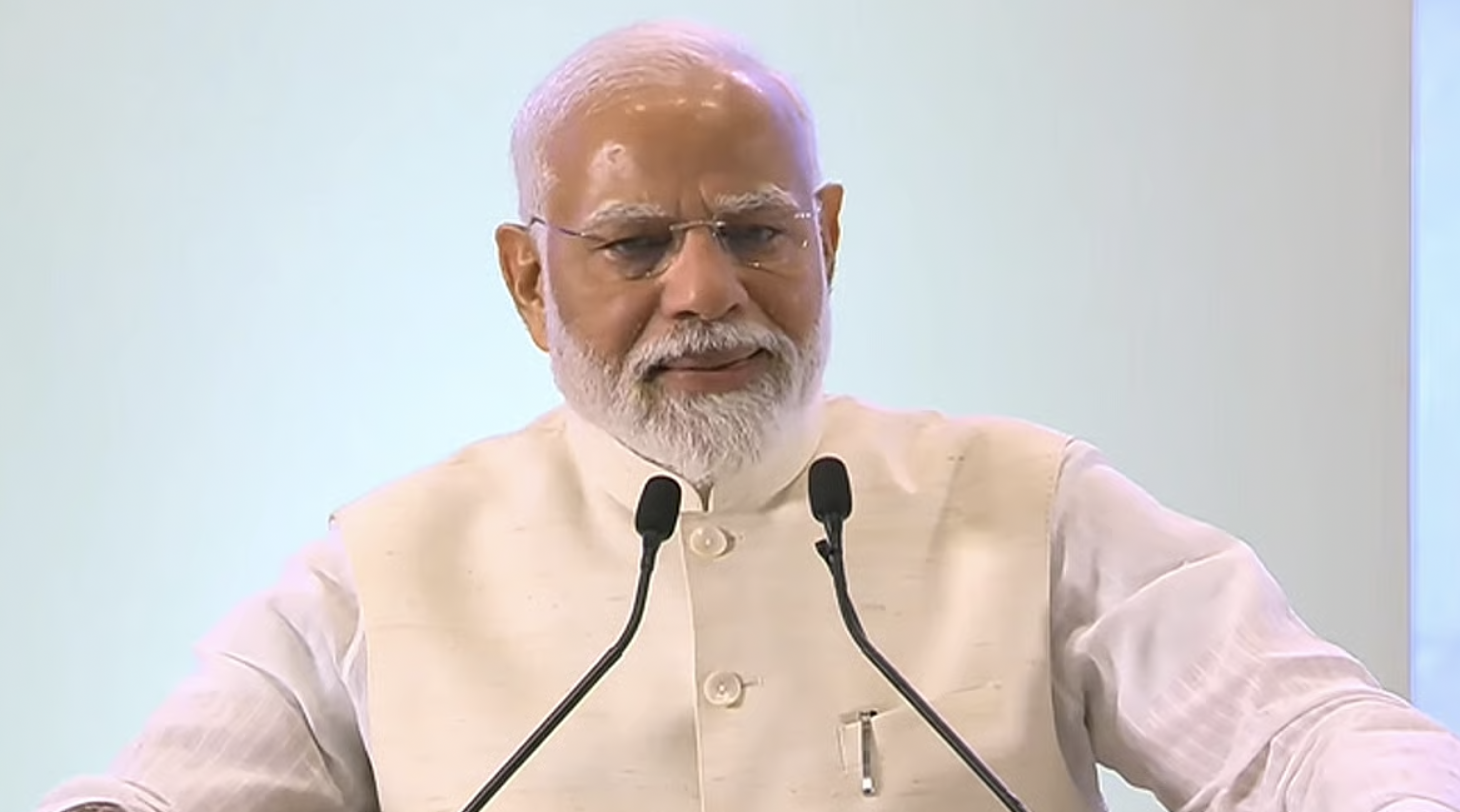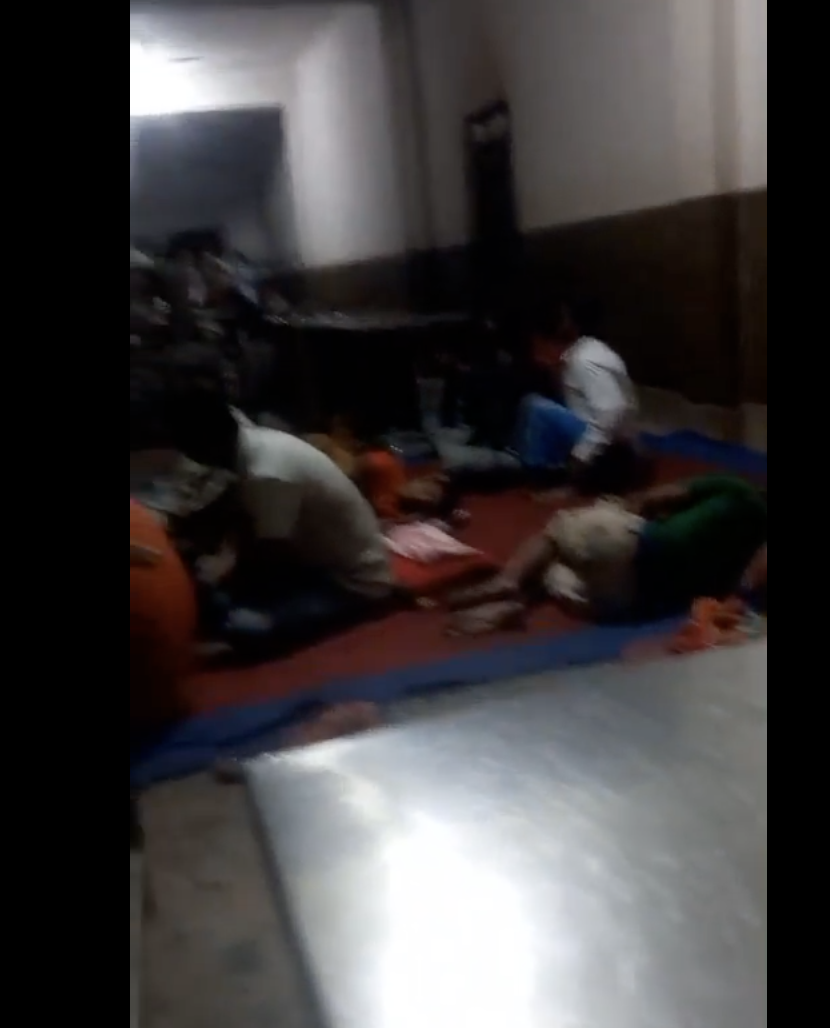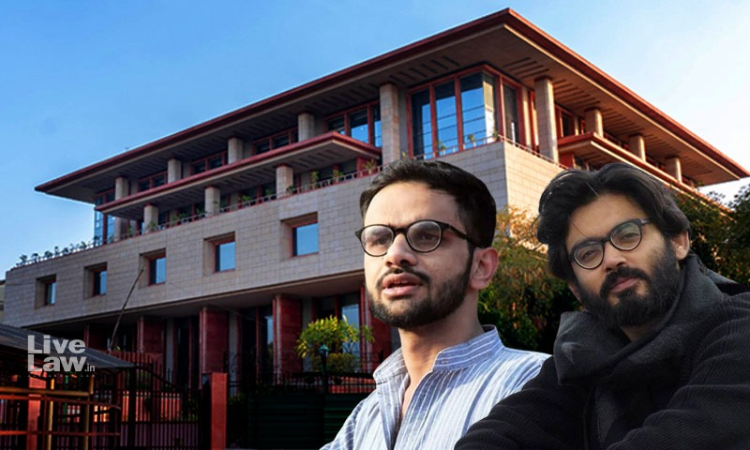
By Farha Shareef V and Hiba V / Maktoob Media
The Indian Express led investigation revealed that individuals involved in the restructuring of the National Curriculum Framework for schools have direct links with Rashtriya Swayamsevak Sangh, the paramilitary volunteer organisation of Hindu nationalists.
At least 24 members are with RSS links and some of them even had served as functionaries in different RSS bodies, finds the investigation of the news report.
Nation Education Policy was launched in 2020 and it aims to devise four National Curriculum Frameworks (NCFs). The National Curriculum Framework (NCF) for schools is being restructured, the first time since the Modi Government came into power in 2014 and the fifth time overall since Independence.
The Union Ministry of Education created the 12-person committee for curriculum revision, which is headed by former ISRO chairman K Kasturirangan. Each NCF focus group consists of seven to ten people and is broken down into different education-related sections. The NCERT framework will be based on the work of the focus group which is going to explicitly favour Hindu nationalism as many members of the same have confirmed connection with RSS.
“We are dealing with an iceberg phenomenon now as it is only the tip of the iceberg. Only the apparent 10% we are able to figure out even now,” said Sachin Narayanan, former Delhi University Academic Council member and Delhi University Teachers Association executive.
As part of a “textbook rationalisation” effort in light of the COVID-19 outbreak, the NCERT has already removed material about the Gujarat genocide, “Naxalite movement” and “Controversies regarding Emergency” from the Class 12 Political Science syllabus, reveals The Indian Express investigation.
“References to the massacre that Gujarat witnessed in 2002, anti-sikh massacre of 1984 have been censored from the textbooks. But more surprising is their effort to remove references to emergency as sangh parivar often portrays themselves as victims of that political witch hunt. This particular rationalisation finds rationale to remove references about the Muslim community. Given the kind of ideological work that sangh parivar organisations have been doing over these years, in fact NCF not to have a majority of experts with right wing affiliation would be a great surprise,” Sachin said to Maktoob.
“They describe this as a textbook rationalisation exercise where they remove portions. But in NCF, in the later stages, they are going to make a lot of inclusions if they have not already done that. It will be worthwhile to look at the additions that they are making”, he added.
Recently The Indian Express brought in interviews with focus group members bearing RSS links and their responses to queries on their affiliations and the groups they are working at. Most of them claim to remain detached from their ideologies and behave impartially in such forums while proudly identifying their past or present connections to RSS and its different wings.
“My connection to education is important, other parts are not important,” asserts D Ramakrishna Rao, the chairman of the focus group for holistic, enjoyable, and engaging curriculum and pedagogy. He is the current All-India President of RSS education wing Vidya Bharati.
Many refute the claim that their affiliation with the RSS gave them access to focus groups; rather they emphasised their credentials and subject-matter expertise. Examples include Prof. Milind Sudhakar Marathe, a former national president of the RSS student wing ABVP who is now in charge of the group working on science and education. However, some of them made an effort to argue that their previous office-holding did not always indicate their current political alliances.
At the same time, there are committee members who proudly acknowledge and even justify their alliances. Anjali Deshpande, from the gender department identifies herself as one among the first full-time women workers of the ABVP. The national co-convenor of the RSS affiliate Swadeshi Jagran Manch (SJM), Dr. Bhagwati Prakash Sharma from the Philosophy and Aims of Education section, explains SJM as a forum for awakening people about economic patriotism.
Another member from the same group, Datta Bhikaji Naik, underlines the value of Indian philosophy and contends Sanskrit should be employed as a connection language.
Prof Mamta Singh, Associate professor of Visual Arts at MKP Girls Inter College in Dehradun, from Arts and Education group, expresses her opinion to go beyond Islamic architecture and focus on Indian art forms and culture. Associate professor at IGNOU’s rural development department, Dr Bishnu Mohan Dash, from the group focussing on Emerging Role of Community in Education specifically argues for “Indianisation of social work education”.
“The RSS has always tried to substitute scientific, secular history with a narrow communal version. They have been doing it in their school texts taught in the RSS schools, the Saraswaati Shishu Mandirs, for decades. However when they get access to state power they try to get their distorted version of history to be adopted in the general education system”, Aditya Mukherjee, Professor of Contemporary Indian History at Jawaharlal Nehru University (JNU) and co-author of the book RSS, School Texts and The Murder of Mahatma Gandhi: The Hindu Communal Project told Maktoob.
“It was first done in 1977 (RSS/Jan Sangh had merged with the Janata Party which was in power) when they tried unsuccessfully to ban texts written by India’s tallest historians like , Romila Thapar, Satish Chandra, R. S. Sharma, Arjun Dev and Bipan Chandra for the NCERT. During 1999-2004 with greater control over the Union Government (the NDA was in power), there was again a RSS directed effort to delete critical passages from these books. Also, a number of communal history texts were prepared by them which were severely critiqued by the Indian History Congress and others. Now with the BJP in power without the restraining influence of coalition partners the RSS has relaunched their project with no hold barred”, professor elaborated.
When asked about the presence of RSS in the text book committee, Abhishekh Nandan, Hyderabad Central University Students Union President and Students’ Federation of India (SFI) leader said to Maktoob over phone: “This is a deliberate attempt of people in power to highlight the single sided story of Indian History. Reframing the syllabus so as to glorify one side of the story and obscure other aspects is detrimental.”
One of the prominent participants in the Alternative Ways for Schooling focus group, Prof. Ramachandra G. Bhat, upheld that their focus group recommended incorporating Indianness into every facet of education, which gives us hints about the aim of the whole project to reframe school curriculum.
“The dangers of injecting the poison of hatred and division in children’s education through RSS functionaries cannot be overstated, and must be a matter of concern for us all. The skewed view of education and society that was evident in the National Education Policy (NEP) continues to wreak havoc in the educational landscape. The continuous sabotage of textbooks and curricula is a death knell for the idea of inclusive, holistic and transformational education”, Fawaz Shaheen, National Secretary of Students Islamic Organisation of India (SIO) told Maktoob.
This article first appeared on maktoobmedia.com






